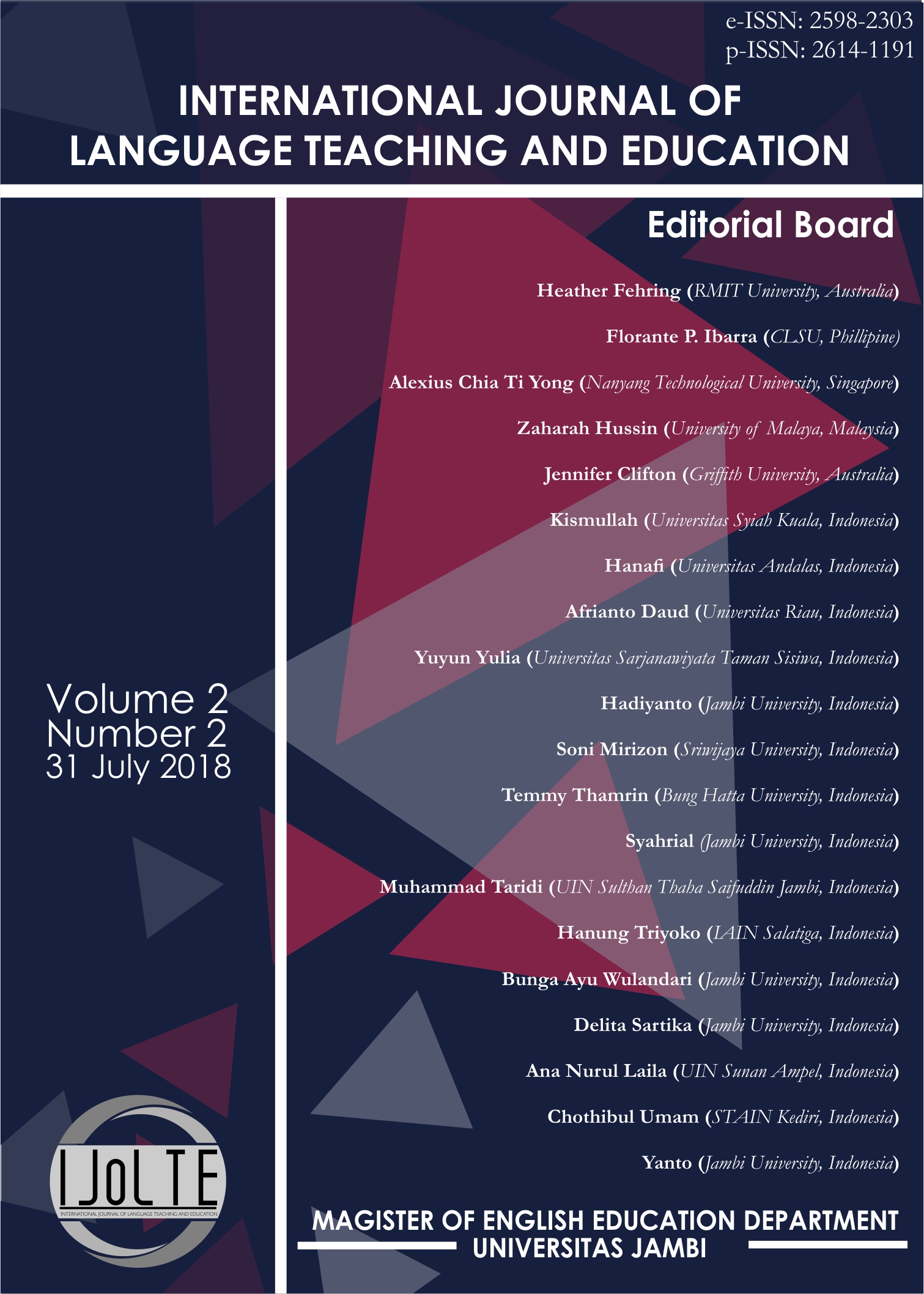Manifestation of 18th century literary movement through Sir Walter Scott’s Ivanhoe: History has been rewritten
DOI:
https://doi.org/10.22437/ijolte.v2i2.5003Abstract
The nationalist feeling is agitating again today. As far as the new and ultra-developed global scenario is concerned, a huge facet of exotic invasiveness is up for grab. People of the modern era are in the thought process that their native country might be under serious threat; even though; they would remain silent until their entity rattles. The national tale before Ivanhoe reflects national character as a synecdoche of an unchanging cultural space; here patriotism is a self-evident legacy, the result of unbroken continuity and a populist community that unites aristocracy and folks. Arguably, Sir Scott for the first time, enlightens the vision of national continuity through the forcible, often violent, entry into history that does the feudal folk community become a nation. Patriotism is a positive thing for every nation and its people. It’s undoubtedly a notion of proud and passion. But here in the novel Ivanhoe, the other aspect of patriotism has been also highlighted, which has the notion of negativity and intolerance. However, we should keep in mind the time when Sir Scott was writing the novel. This was the period where just the resentment happened between France and England. In fact, the novel Ivanhoe was published (1819) just after few years of Napoleonic Wars, where eventually, England went on victorious after the defeat of Napoleon Bonaparte at the Battle of Waterloo. Therefore, against this historical backdrop, the continuous struggle in Ivanhoe between domineering Normans (French) and honest Englishmen (Saxon and their allies) took on center stage to redefine the concept of patriotism.
Downloads
Downloads
Published
Versions
- 2018-08-03 (1)
- 2018-08-03 (1)
How to Cite
Issue
Section
License
The Authors submitting a manuscript do so on the understanding that if accepted for publication, copyright of the article shall be assigned to International Journal of Language Teaching and Education (IJoLTe) and Magister Program of English Education Department, Universitas Jambi as publisher of the journal. Copyright encompasses rights to reproduce and deliver the article in all form and media, including reprints, photographs, microfilms, and any other similar reproductions, as well as translations.
IJoLTe keep the rights to articles that have been published. And, the authors are permitted to disseminate published article by sharing the link of IJoLTe' website. Authors are allowed to use their works for any purposes deemed necessary without written permission from IJoLTe with an acknowledgement of initial publication in this journal.
IJoLTe and Magister Program of English Education Department, Universitas Jambi, and the Editors make every effort to ensure that no wrong or misleading data, opinions or statements be published in the journal. In any way, the contents of the articles and advertisements published in IJoLTe are the sole and responsibility of their respective authors and advertisers.
If the article was jointly prepared by more than one author, any authors who submitting the manuscript warrants that he/she has been authorized by all co-authors to be agreed on this copyright and license notice (agreement) on their behalf, and agrees to inform his/her co-authors of the terms of this policy. IJoLTe will not be held liable for anything that may arise due to the author(s) internal dispute. IJoLTe will only communicate with the corresponding author.
By submitting the article/manuscript to this journal, the authors agree with this policy and consciously agree that IJoLTe does not provide royalties or other fees to the authors for their published articles. By agreeing this policy, IJoLTe ensures that published articles are publicly accessible and will be free of charge for the readers. No specific document sign-off is required.
Users of this website will be licensed to use materials from this website following the Creative Commons Attribution 4.0 International License. Please use the materials accordingly
You are free to:
- Share — copy and redistribute the material in any medium or format
- Adapt — remix, transform, and build upon the material for any purpose, even commercially.
- The licensor cannot revoke these freedoms as long as you follow the license terms.








1.png)
